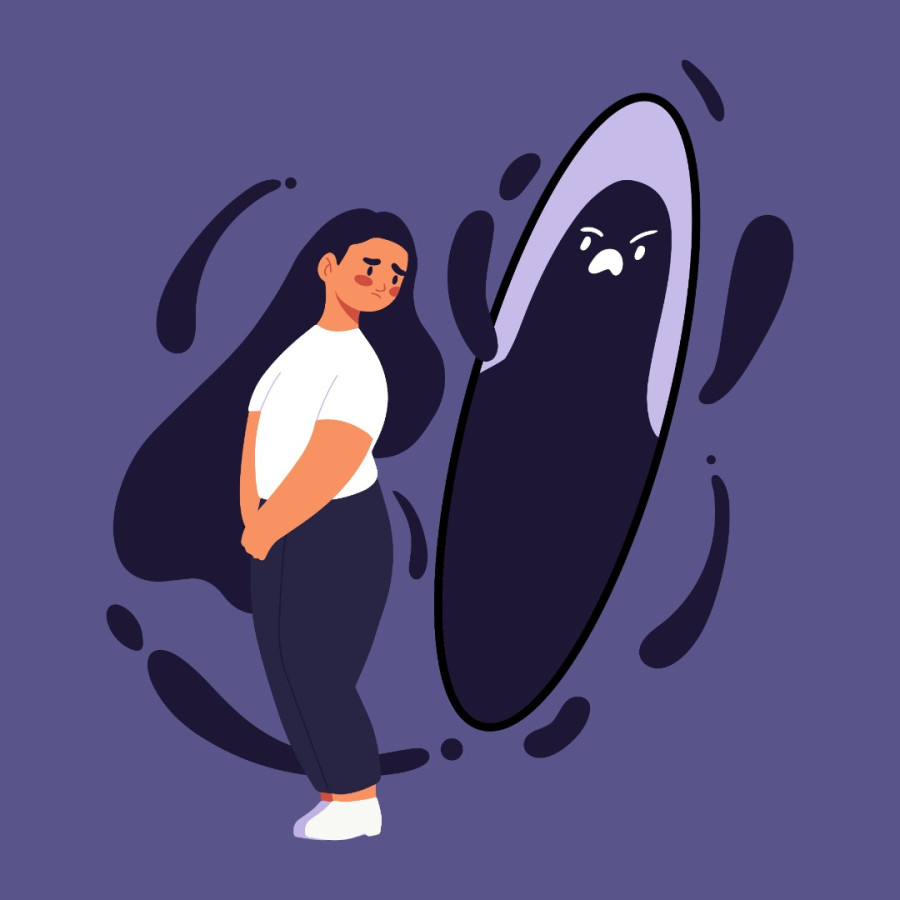Culture & Lifestyle
Understanding dysmorphia
Anjana Das Pariyar provides detailed information on its symptoms, causes and treatment methods.
Rukusha Giri
People often view certain aspects of their lives, especially their looks, in a negative light. This can sometimes lead to a serious psychological issue called body dysmorphic disorder (BDD). This condition changes how a person sees and feels about their body and appearance, causing distress and posing risks to both physical and mental health. It is important to address these negative self-perceptions and promote a positive body image.
Anjana Das Pariyar is a mental health professional with expertise in teaching and counselling. She teaches at the psycho-social counselling and research centre, offering a comprehensive six-month training programme on psycho-social counselling. Additionally, she works as a counsellor at Adhyayan School. Pariyar holds a bachelor’s degree in sociology, a postgraduate diploma in school counselling, and an MA in clinical psychology from Tribhuvan University. She provides detailed information on BDD symptoms, causes and treatment methods.
What is it?
Body dysmorphic disorder is a mental health condition characterised by obsessive thoughts about one’s appearance, specifically perceived defects or flaws that may not be noticeable to others. These thoughts can lead to avoidance of social situations and negatively impact quality of life and self-esteem. Those with the disorder frequently engage in compulsive behaviours such as mirror-checking and grooming, often for several hours a day, causing significant anxiety and distress and impacting their ability to function in their daily lives.
Individuals with this condition perceive one or more of their body’s characteristics as flaws. This perception leads them to spend excessive time fixating on or attempting to alter what they believe is wrong with their appearance. Although each person’s body is unique, individuals with BDD have a distorted perception of their physical features.
What are its symptoms and causes?
People with BDD often display noticeable signs that may be observed by others. It's crucial to recognise that nobody’s body is flawless, and imperfections are a part of being human. However, those with BDD tend to fixate solely on their perceived flaws, struggling to appreciate other aspects of their appearance. Common behaviours include excessive time spent in front of mirrors, overapplication of makeup, and a constant need for attention. They may lack confidence, avoid public places, and believe they possess a defect, making them appear ugly or deformed. Seeking reassurance frequently, fearing judgment from others, and comparing themselves to peers are also typical behaviours. These symptoms can persist from early adolescence throughout a person's life. It's important to note that BDD is not exclusive to women; men can also experience it.
BDD typically emerges during adolescence but has roots in childhood experiences. In Nepali culture, negative comments about physical appearance, such as being labelled ‘kali’ (dark skinned) or called ‘moto’ (fat) for perceived overweight, can significantly impact self-esteem and contribute to BDD development. Individuals with BDD may lack effective coping mechanisms, leading to excessive rumination and worsening of symptoms. It’s essential to understand that cultural factors and societal pressures can play a role in shaping one’s perception of body image, contributing to the manifestation of BDD.
How can BDD be treated?
Individuals with BDD are intensely focused on perceived flaws in their physical appearance, causing disruptions in daily life and contributing to feelings of shame, anxiety, and depression. In severe cases, it may even lead to thoughts of self-harm.
Fortunately, effective treatments are available to help manage BDD symptoms and enhance overall quality of life. Cognitive-behavioural therapy (CBT) is a commonly used approach. This therapy assists individuals in recognising and changing negative thought patterns related to their appearance. CBT also equips them with coping mechanisms to handle symptoms and boost self-esteem. In certain instances, medication may be prescribed to alleviate symptoms of anxiety or depression. Seeking guidance from a psychiatrist experienced in treating BDD is essential for individuals dealing with this condition.
With the right treatment and support, individuals with BDD can learn to manage their symptoms and lead fulfilling lives.





 9.12°C Kathmandu
9.12°C Kathmandu















